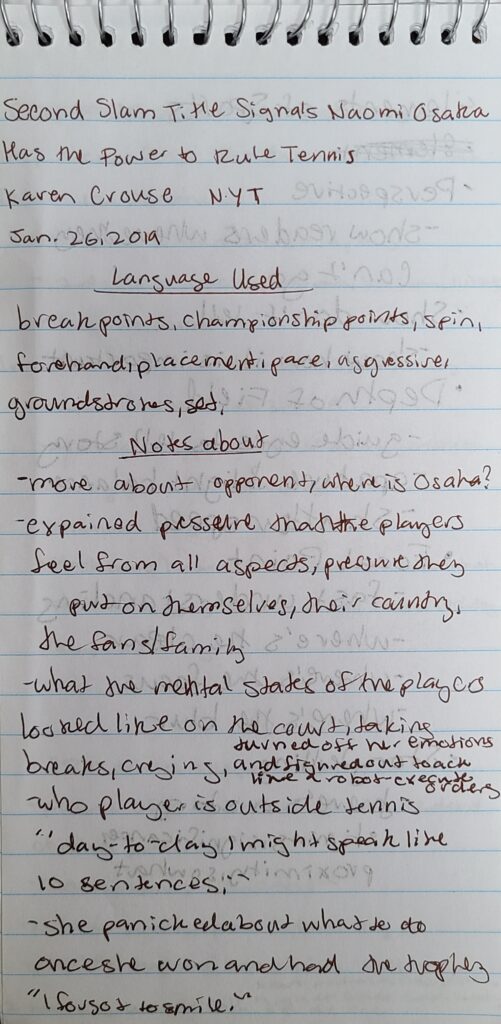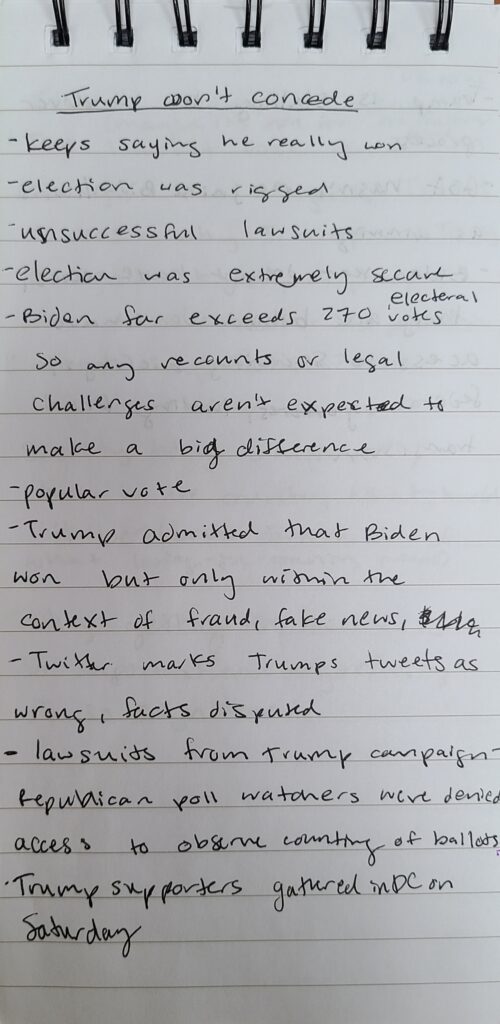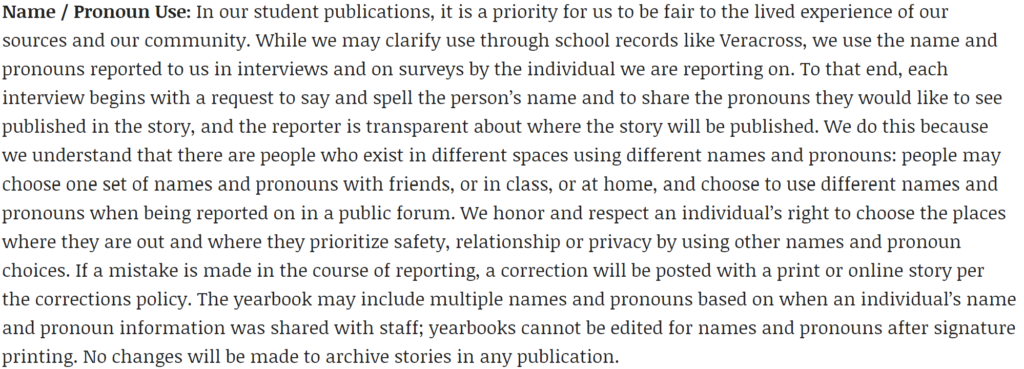Journalism has to remain accurate, whether a social media post or an article. Each staff member is educated on the professional and student journalist code of ethics and Copywrite laws during Writing for Publication before becoming an editor on staff. These rules are upheld under close guidance from our advisor, my co-Director, and me. Most mistakes are caught before publication by the editor, but something will be published that isn’t fully polished every once in a while. An email or in-person conversation happens after a story is taken down for inaccurate credits, inaccurate information, or biases. For example, a few weeks ago, I sent an email to a staff member asking them to fix the misidentification of a college being Division 1. A few months ago, I sent a flow chart to an editor to help them decide if a writer’s image was fair use or not.
In the prerequisite for becoming an editor on staff, Writing for Publication, we are taught how to read and analyze professional news articles. There is a specific lens that I use when reading professional newspapers that I developed through analyzing articles. I don’t read and fully believe every sentence in an article; I expect the writer to make a mistake. I recognize the goal of the article and how it’s organized, and through breaking it down into a reversed outline, I’m able to recognize biases. This is especially useful when I’m researching for an article. For my in-depth, scientific, or historical articles, I read dozens of articles and have pages of notes. I try to get as close to the source as possible by searching government websites and databases. I share this insight with staff members when brainstorming with them or editing a draft.


As a staff, we carefully state all of our policies on our website. It makes our mission known to the community and validates our process. Staff members frequently view the page to remind us of our policies and refer it to community members in conversation and when an issue arises. We update our policies page when a problem occurs more than once. For example, we recently added a name/pronoun use policy. While not many publications, especially student publications, have adopted a similar policy, we found it necessary for our community. Everyone is taught what we consider the best interviewing process, which is first to ask the interviewee their name and how to spell it, and their preferred pronouns. The practice needed to be more concrete. The number of transgender and non-binary identifying students is growing in our community. We take responsibility for covering them regardless of their identity while remaining respectful to their identity and without causing harm.

The policy was initially introduced at a top-editor meeting where we discussed what should be included. Then our advisor drafted it, we read through it and brought it to The Rubicon print and online staff and the Ibid yearbook staff. Every staff member received the chance to read through the policy and provide feedback before we published it on our site. We must remain a valuable and safe publication for our community to engage with